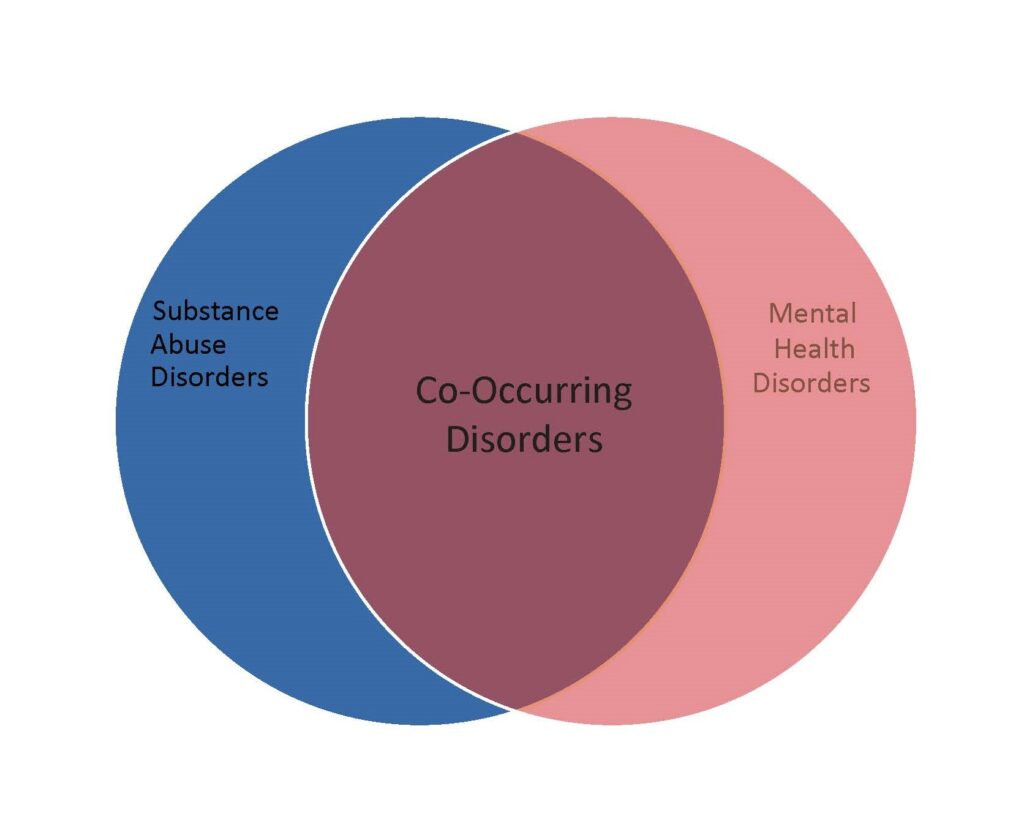The importance of simultaneous treatment for substance abuse and mental illness

According to the National Institutes of Health (NIH) 7.7 million people have a co-occurring mental health disorder and substance use disorder. Unfortunately, 52.5% of these people received neither mental health treatment nor substance abuse treatment. But what does co-occurring mean and why is treatment important? In the past other terms have been used. Regardless of the term used, it is an individual who is affected by both a substance abuse disorder, and a mental health illness. Studies have shown that people with mental health disorders are significantly more likely to succumb to alcohol or other drug abuse disorders than people who do not have any mental health issues.
What makes things even more difficult is that co-occurring disorders are extremely difficult to diagnose since the symptoms of both issues are complex and often overlap one another. Of the 20.3 million people with a substance abuse disorder, 37.9% of these people also have a mental illness, according to NIH. For example, a person with opioid abuse may get treatment for their substance use, while their bipolar disorder goes undiagnosed and untreated. It is not uncommon for people with depression to try and alleviate their symptoms with meth or cocaine. In turn leading their mental health disorder to a substance use disorder. It is also not uncommon for certain substance abuse disorders such as alcoholism to lead to a mental health disorder of depression.
Co-occurring disorders often lead to the mystery of which came first. At times the mental health disorder develops during childhood or teenage years and then leads to experimentation with drugs and alcohol. This in turn leads to a substance abuse disorder as well, otherwise known as a co-occurring disorder. For a smaller percentage of people, a mental health disorder can lie dormant for years and then become unlatched by drugs during adulthood. For others, substance abuse disorders can lead to mental illnesses such as depression, anxiety and even sometimes psychosis. Co-occurring disorders can generally be divided into two separate categories: those that developed before substance abuse and those that developed as result of substance abuse. Regardless of the type, it is important that both the mental health disorder and the substance abuse disorder be treated simultaneously.
Experts have learned that co-occurring substance abuse and mental health disorders require simultaneous treatment in order to be effective. This was not always the case. In the past, traditional care treated these disorders separately. A comprehensive treatment program such as Bella’s House provides all of the nursing, holistic and therapeutic resources required to treat co-occurring disorders. If a loved one or yourself remain undiagnosed and untreated for a co-occurring disorder, speak with a member of our clinical team to begin your recovery and healing. Bella’s House will help you find the best treatment for your co-occurring disorder. Call today.